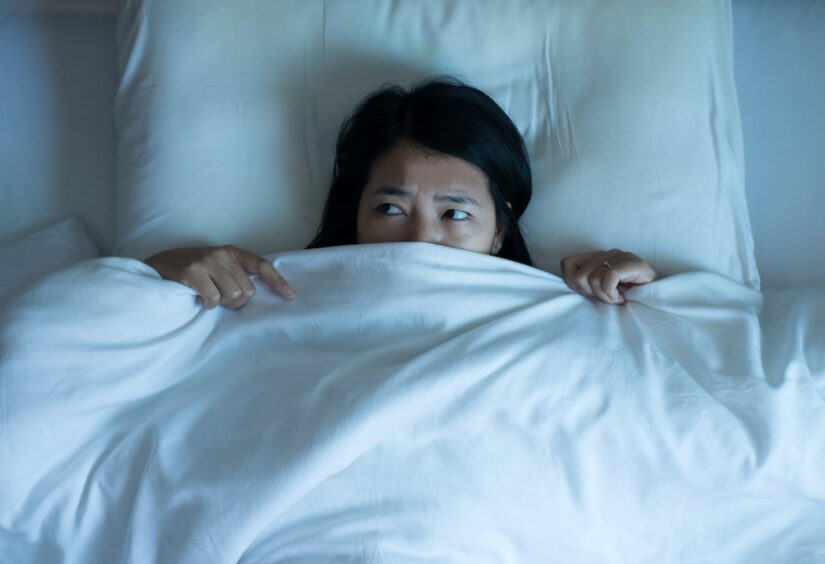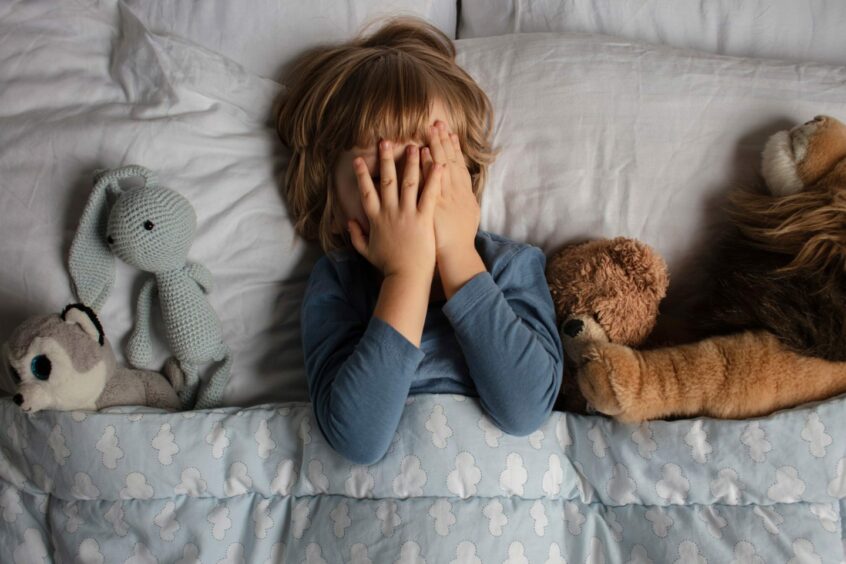Watching someone experience a night terror can be a scary experience. Your instinct might be to wake the person up, or try to comfort them.
But do you know what to do if someone in your household has one? Do they occur more in adults or children?
And is there anything you can do to stop them?
We speak to Alyson O’Brien from Sleep Scotland to find out all you need to know about night terrors.
Do children or adults experience night terrors?
According to the NHS, night terrors are most common in children aged three to eight.
They can be caused by being very tired or unwell, something frightening (such as a scary film), or certain health conditions such as sleep apnoea, PTSD or dementia.
Alyson says: “Night terrors occur during the early stages of sleep. Children usually grow out of them by adolescence.
“It can be very distressing for people around them because they do seem like they’re absolutely petrified. They might be screaming and running around.
“Then, all of a sudden, the episode will end, they take themselves back to bed and the poor parents are left wondering what on earth has just happened.”
While most common in children, they do occur in adulthood too, as Alyson explains.
“If someone in adulthood experiences night terrors, this usually starts because of trauma.
“If they start, you need to ask what about your life has changed that might mean you’re now having night terrors and can you remove whatever that is?
Too much caffeine
“I remember hearing about a young man who worked really long days and was drinking lots of energy drinks.
“The excessive caffeine prompted him to start having night terrors and as soon as he cut it out, the night terrors stopped.”
What should I do if someone in my house is having night terrors?
Your instinct may be to try and wake them up, or comfort them.
But, Alyson explains, this may not be the best way to deal with them.
She says: “It sounds totally counterintuitive but the best thing to do is just leave them be and let it pass.
“If you try and give them a cuddle or reassure them, even touching them at all can make the night terror last longer. It isn’t known why this happens.
“If you let them get through the terror, they’ll go back to sleep and will be absolutely fine whereas often if you try and wake your child up, it can make them more disorientated and even more upset .
“They don’t know what’s been happening and won’t remember so won’t understand why they’ve been woken up.
“We also recommend not telling the child the next day they had a night terror.
“This is because they might start to stress about it. They are then more likely to have another night terror because they’re worried about it.
“Leave them be, make sure they’re safe and it will pass.”
If the person is having a night terror at the same time every night, the NHS recommends waking them up 15 minutes before the night terror every night for a week.
This can sometimes prevent them from happening.














Conversation